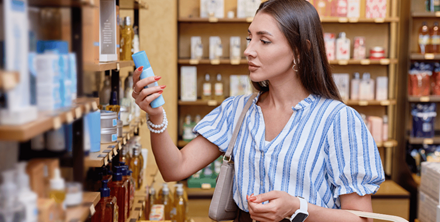
In the ever-evolving landscape of cosmetics, beauty, and fast-moving consumer goods (FMCG), digital marketing has emerged as a cornerstone for B2B success. The dynamic nature of these industries demands innovative approaches to engage with partners, suppliers, and distributors, making digital marketing an essential tool for driving growth, enhancing brand visibility, and fostering collaboration.
Transforming Communication and Engagement
Digital marketing has revolutionized how businesses in the cosmetics, beauty, and FMCG sectors communicate with their B2B stakeholders. Traditional methods such as trade shows and print catalogs are now complemented or replaced by digital platforms. Email campaigns, webinars, and social media networks offer real-time, cost-effective ways to connect with partners globally.
Building Brand Awareness
Establishing a strong brand identity is critical for businesses in these sectors. Digital marketing provides tools like search engine optimization (SEO), content marketing, and social media strategies to position a brand as a market leader. By sharing educational content, case studies, and success stories, companies can build credibility and trust among their B2B audience. For example, manufacturers in the beauty industry can highlight their commitment to sustainability and clean beauty through targeted online campaigns.
Data-Driven Decision Making
One of the greatest advantages of digital marketing is the ability to leverage data analytics. Platforms like Google Analytics and CRM tools enable businesses to track campaign performance, understand customer behavior, and identify trends. For FMCG companies, this means they can better anticipate demand, optimize supply chains, and tailor their offerings to meet client needs. Data-driven insights also help in identifying high-potential markets and refining strategies for maximum ROI.

Enhancing Lead Generation and Conversion
Digital marketing has redefined lead generation in the B2B space. Strategies like account-based marketing (ABM), targeted LinkedIn ads, and pay-per-click (PPC) campaigns allow companies to reach decision-makers with precision. In the cosmetics industry, a supplier of raw materials can use these tactics to connect with manufacturers looking for specific ingredients. By providing detailed product information and case studies online, businesses can nurture leads and convert them into long-term partnerships.
Enhancing Lead Generation and Conversion
Digital marketing has redefined lead generation in the B2B space. Strategies like account-based marketing (ABM), targeted LinkedIn ads, and pay-per-click (PPC) campaigns allow companies to reach decision-makers with precision. In the cosmetics industry, a supplier of raw materials can use these tactics to connect with manufacturers looking for specific ingredients. By providing detailed product information and case studies online, businesses can nurture leads and convert them into long-term partnerships.
Leveraging E-Commerce and Marketplaces
E-commerce platforms and B2B marketplaces are gaining traction in the cosmetics, beauty, and FMCG sectors. These digital channels efficiently showcase product catalogs, process orders, and manage transactions. Platforms like Alibaba or specialized industry marketplaces enable suppliers and manufacturers to expand their reach and streamline operations. Digital marketing strategies play a crucial role in driving traffic to these platforms and ensuring visibility among competitors.
Sustainability and Ethical Marketing
Sustainability and ethical practices are becoming increasingly important in these industries. Digital marketing allows businesses to communicate their values and initiatives effectively. For example, a beauty brand focusing on cruelty-free products can use social media campaigns and blogs to highlight its ethical stance, resonating with B2B clients who share similar values.
Staying Competitive in a Saturated Market
The cosmetics, beauty, and FMCG industries are highly competitive, with new players entering the market regularly. Digital marketing provides the tools to stay ahead by continuously engaging with clients, showcasing innovations, and differentiating from competitors. Whether through influencer collaborations, virtual product demonstrations, or AI-driven chatbots for customer service, digital marketing ensures businesses remain relevant and accessible.

igital marketing is not just a supporting function but a strategic imperative for B2B players in the cosmetics, beauty, and FMCG industries. By embracing digital tools and platforms, companies can build stronger relationships, enhance brand visibility, and drive sustainable growth. In a world where digital transformation is accelerating, businesses that prioritize digital marketing are better positioned to thrive in the competitive and fast-paced environment of these industries.
- Article By Bhushan Tandel – [email protected]

